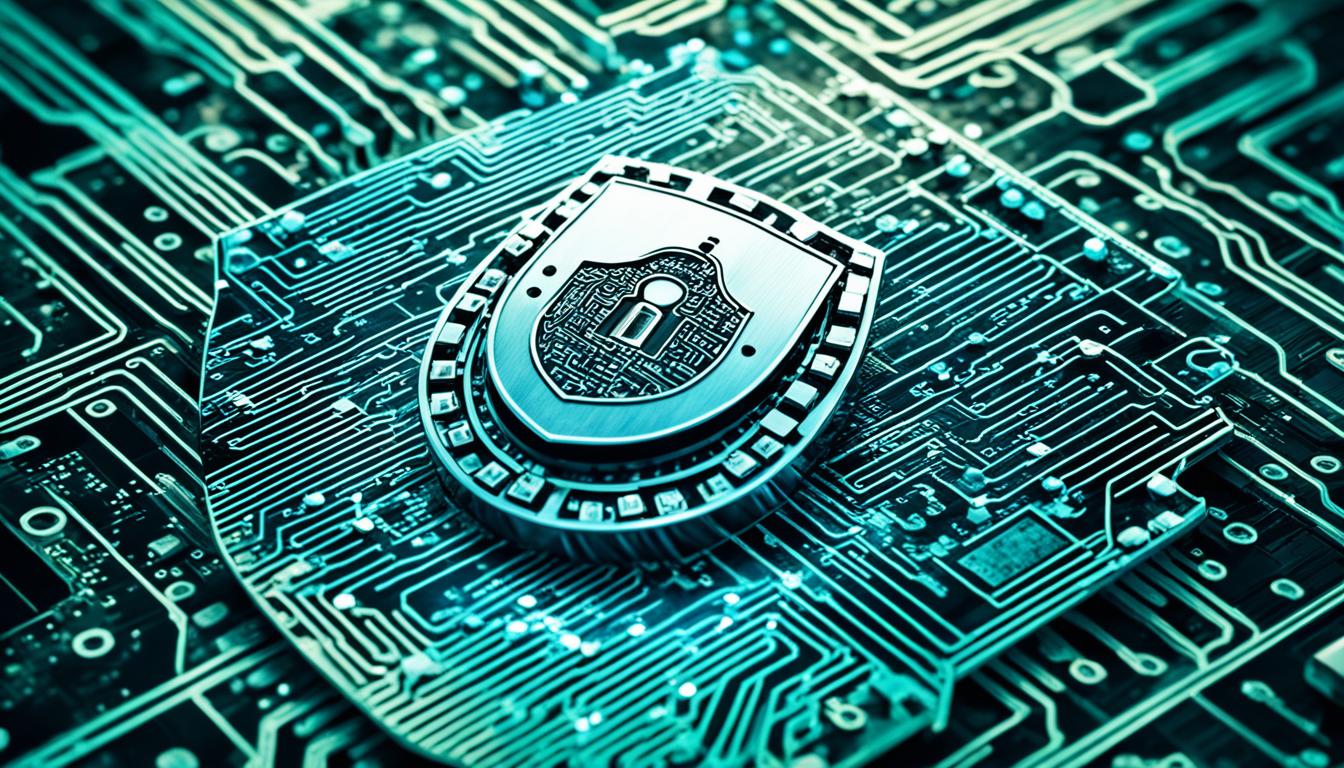
In today’s digital landscape, safeguarding your sensitive data and computer systems has never been more crucial. While cybersecurity may seem daunting, the reality is that you can keep your online presence secure with just a few simple steps. With a little knowledge, effort, and time, you can lock down your IT security and enjoy the benefits of a safer digital life.
Cybersecurity doesn’t have to be an expensive, complex endeavor. In fact, many trusted free tools and cybersecurity best practices can be easily implemented to enhance your data protection. By dedicating just a few minutes to prepare, you can significantly reduce the risks of data breaches, identity theft, and other online threats. Even if some of your information is compromised, following straightforward guidelines can ensure the damage is minimized.
Key Takeaways
- Cybersecurity best practices can be easily implemented to enhance your data protection
- Trusted free tools are available to help secure your digital life
- Dedicating a few minutes to prepare can significantly reduce the risks of data breaches and identity theft
- Simple guidelines can help minimize the damage if your information is compromised
- Investing in IT security provides long-term benefits and peace of mind
Importance of Cybersecurity
In today’s digital landscape, cybersecurity has become increasingly crucial. As technology continues to permeate every aspect of our lives, the need to protect our online presence, data, and digital assets has never been more pressing. Worldwide security spending is predicted to reach $188.1 billion in 2023 and is expected to grow to $288.5 billion by 2027, according to Gartner.
Impact of Data Breaches
Data breaches have become a startling reality, with reports of major companies and organizations falling victim to these attacks. The impact of data breaches can be devastating, leading to the loss of sensitive information and increasing the risk of identity theft. In 2017, a breach of Equifax compromised the personal data of 147 million people, underscoring the widespread consequences of such incidents.
Risks of Cyber Threats
Cyber threats, such as malware, ransomware, and bot networks, pose a significant risk to our digital security. Ransomware attacks have increased by 13% in the last five years, with an average cost of $1.85 million per incident. Small businesses are particularly vulnerable, with 13% reporting a ransomware attack in the past year and 24% reporting at least one ever, according to the Small Business Association (SBA).
The importance of cybersecurity cannot be overstated. As the digital landscape continues to evolve, the need to protect our online privacy, data, and identity has become paramount. Individuals and organizations must take proactive steps to safeguard their digital assets and stay ahead of the ever-evolving cyber threats.
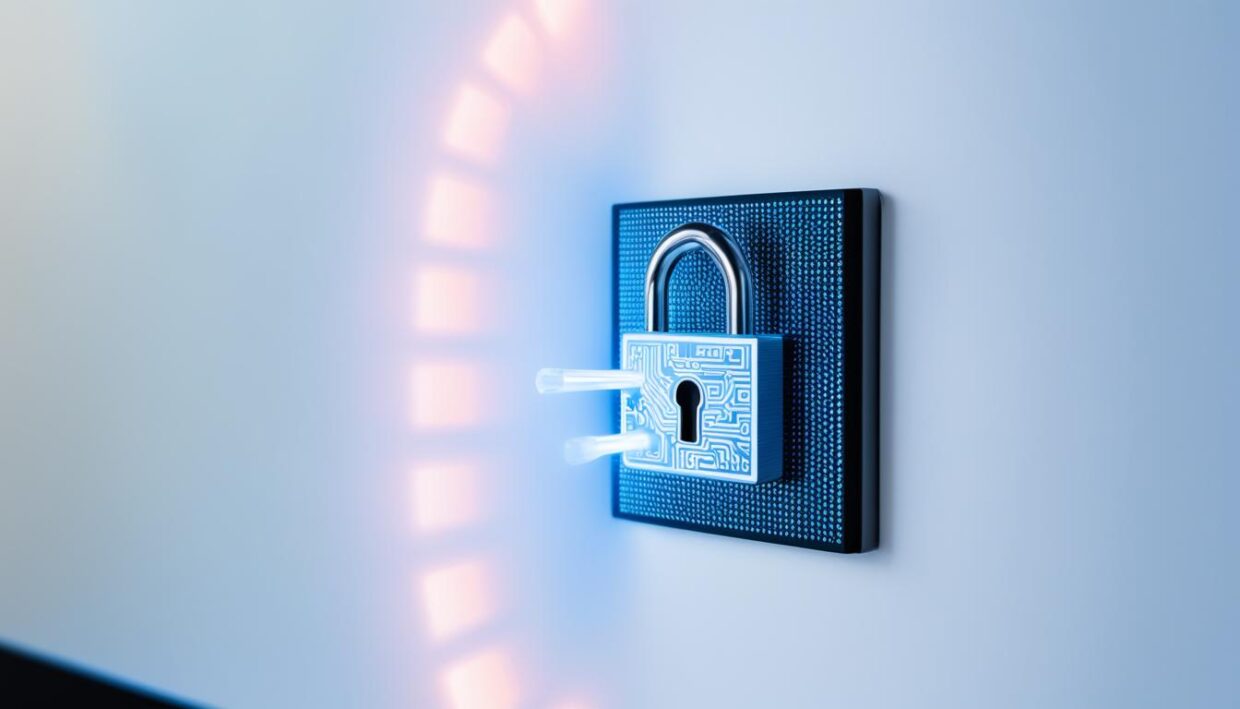
Keep Software Updated
Maintaining up-to-date software on your devices is crucial for enhancing cybersecurity. Regularly updating your personal computers, smartphones, and tablets helps protect you from the latest ransomware, malware, and other cyber threats. Configure your devices to automatically receive and install software updates, or at least set notifications to alert you when updates are available.
According to the University of Idaho’s Administrative Procedures Manual (APM) 30.111, all university-owned devices must be configured to automatically receive and install software updates from approved sources. The OIT Data Security Standards also mandate that all devices connected to the university network must have the latest security patches installed within 30 days of their release.
To ensure your devices and software are secure, follow these best practices:
- Enable automatic software updates whenever possible to keep your systems patched and protected.
- Regularly check for and install updates to widely used applications like Microsoft Office 365, Zoom, and web browsers supported by the university (Google Chrome, Mozilla Firefox, Microsoft Edge, and Safari).
- Maintain a stable internet connection and sufficient disk space to accommodate software updates, especially for cloud-based solutions.
- Avoid downloading software from untrusted sources, as this can increase the risk of malware and security breaches by up to 65%.
Keeping your software up-to-date is a crucial step in maintaining robust cybersecurity. By following these best practices, you can significantly reduce your vulnerability to cyber threats and enjoy a safer digital experience.

“72% of users benefit from improved security by updating software and apps regularly, and 90% of software companies issue regular updates to enhance security.”
Create Strong and Unique Passwords
In the digital age, strong and unique passwords are essential for safeguarding your online accounts. Experts recommend creating passwords that are at least 12 characters long and include a mix of letters, numbers, and symbols. Avoid using easily guessable information like personal details, common words, or simple patterns.
To enhance password security, it’s crucial to use a unique password for each account. This prevents password managers from becoming a single point of failure if one of your accounts is compromised. Consider using a password manager to securely store and manage your complex credentials, ensuring you can access them conveniently while maintaining high levels of password security.
Password Managers
Password managers, such as LastPass, 1Password, and Google Chrome’s built-in password manager, are widely recognized as a reliable solution for password management. These tools store your passwords in an encrypted database, allowing you to access them with a single master password. This not only simplifies the process of creating and remembering strong passwords but also enhances the overall password security of your online accounts.
| Password Manager | Features | Pricing |
|---|---|---|
| LastPass | Secure password storage, password generator, multi-device sync | Free basic plan, Premium plan starts at $3/month |
| 1Password | Password management, secure vault, password generator, multi-factor authentication | Starts at $2.99/month for individuals, $4.99/month for families |
| Google Chrome | Built-in password manager, password generation, password sync across devices | Free as part of the Google Chrome browser |
By incorporating strong and unique passwords, along with the use of password managers, you can significantly enhance the password security of your online accounts and safeguard your personal information from potential password-related threats.
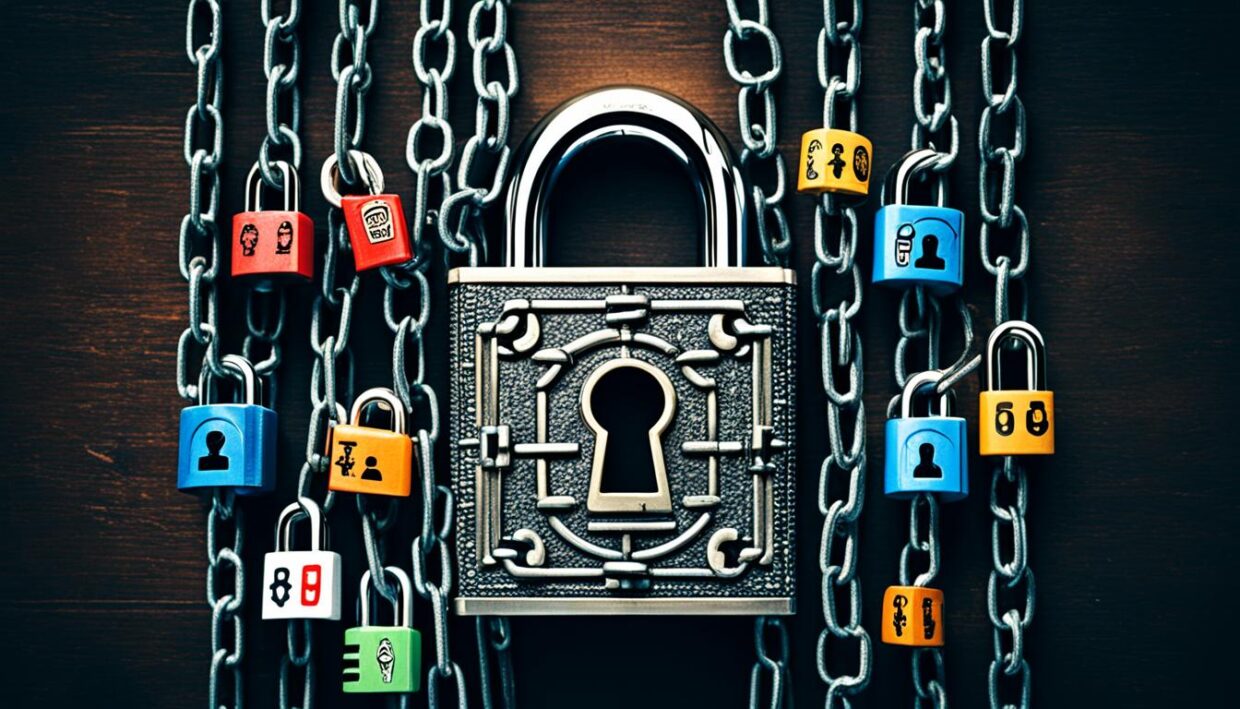
Enable Multi-Factor Authentication
Protecting your digital accounts has never been more crucial in today’s cyber landscape. One essential step you can take to enhance your account security is to enable multi-factor authentication (MFA), also known as 2-factor authentication. MFA adds an extra layer of verification, requiring you to provide additional proof of your identity beyond just a username and password.
MFA can take various forms, such as biometric scans like fingerprint or face ID, security keys, or one-time codes sent to your mobile device. By incorporating these supplementary authentication factors, MFA makes it significantly harder for unauthorized individuals to access your sensitive accounts, even if they have obtained your password.
Enabling MFA is a highly recommended security best practice that can safeguard your key accounts from identity verification breaches and account security threats. It’s a simple yet powerful way to elevate your online multi-factor authentication and 2-factor authentication defenses.
| MFA Benefits | MFA Methods |
|---|---|
|
|
By taking the simple step of enabling multi-factor authentication on your key accounts, you can significantly improve your overall identity verification and account security. Don’t wait until it’s too late – protect your digital life today with the power of MFA.
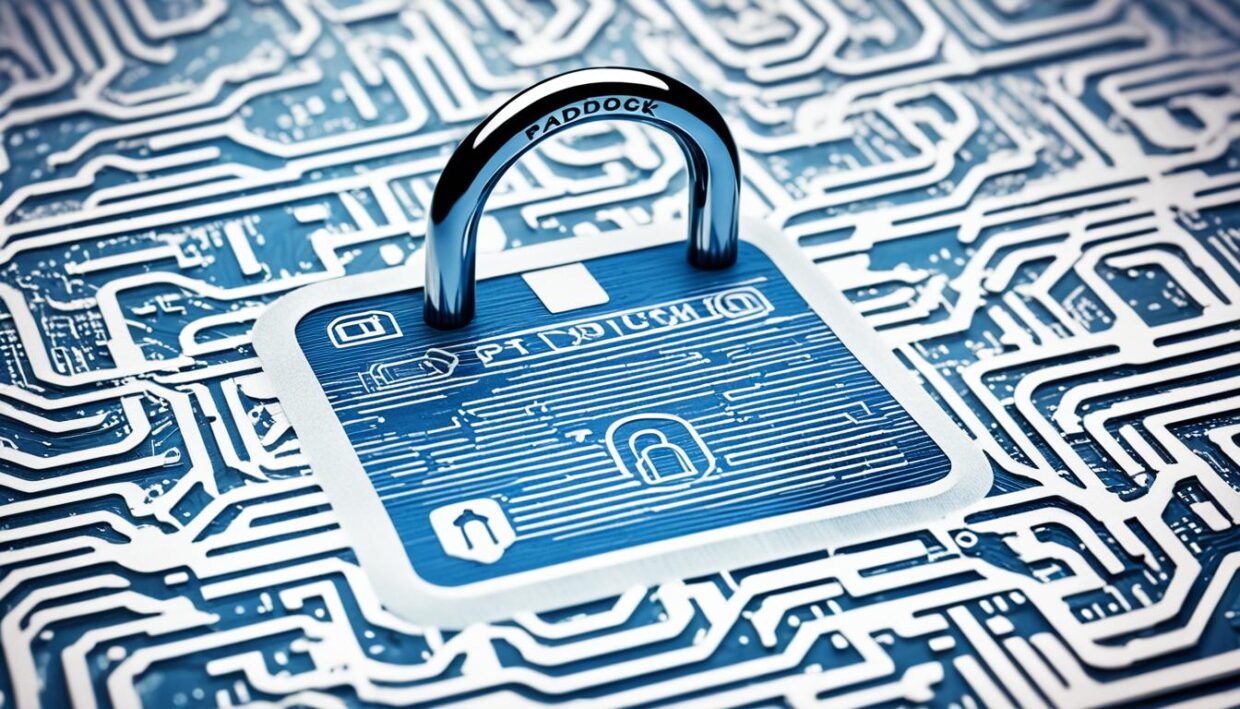
IT Security: Think Before You Click
In the digital age, phishing attacks have become a significant threat to online safety. Cybercriminals often use malicious links in emails, social media posts, and online advertisements to lure unsuspecting victims and steal sensitive information. The importance of exercising caution and thinking before clicking cannot be overstated.
Phishing Attacks: A Persistent Threat
Phishing attacks, where scammers attempt to trick you into revealing login credentials or other personal data, are a constant concern. These attacks can have devastating consequences, leading to data breaches, financial losses, and even identity theft. The most common cyber-attack nowadays occurs through phishing.
To protect yourself from phishing threats, it’s crucial to be vigilant and take the time to carefully assess the authenticity of any message before interacting with it. Look for red flags such as misspellings, grammatical mistakes, urgent language, and spoofed brand names. Hovering over links or using an incognito browser to verify their sources before clicking can help safeguard your online security.

Cyber awareness training can educate individuals on the risks of phishing and other online threats, empowering them to make informed decisions. Boxphish offers interactive training courses, including quizzes and real-world phishing simulations, to help organizations and individuals enhance their online safety and email security.
“Cybercriminals base a lot of their attacks on getting people to act impulsively and without thinking online. The ‘Think Before You Click’ campaign aims to slow down users, make them consider their interactions online, and think before taking any action.”
By cultivating a culture of caution and mindfulness when navigating the digital landscape, we can collectively strengthen our phishing prevention and social media security efforts, safeguarding our personal and professional data from the pervasive threat of phishing attacks.
Report Phishing Attempts
Reporting phishing attempts is a crucial step in combating cybercrime and protecting email security. Phishing is a prevalent form of cybercrime, with scammers often using urgent calls to action or threats in their attempts to deceive targets. If you receive a suspicious email, even if it appears to be from a reputable company, it’s essential to take action.
If you receive a suspicious email at your work address, report it to your IT team as quickly as possible. For personal emails, do not click any links or reply; instead, delete the message and block the sender. Many email and social media platforms allow you to easily report phishing attempts, which helps protect both you and others from these scams.
Phishing emails often have telltale signs, such as spelling and grammar errors or mismatched email domains. Hovering over links in suspicious emails to reveal their true destinations can also help identify phishing attempts. Cybercriminals may also use fake websites in their attacks, so it’s essential to be cautious of any unsolicited requests for personal or financial information.
In addition to reporting phishing attempts, it’s crucial to take immediate action to protect your accounts and devices. Change any compromised passwords, enable multi-factor authentication, and disconnect any infected devices from the network. By taking these steps, you can help minimize the damage caused by these cybercrime attempts.
Remember, reporting phishing messages in Microsoft Outlook and Teams can enhance security protocols and reduce future exposures. Forward phishing emails to reportphishing@apwg.org, phishing text messages to SPAM (7726), and report any incidents to the FTC at ReportFraud.ftc.gov. By working together, we can help combat the growing threat of phishing and protect our personal and professional email security.
| Reporting Phishing Attempts | Protecting Yourself |
|---|---|
|
|

“Phishing scammers change their tactics often, necessitating regular training for staff to spot the latest phishing schemes.”
Use Secure Wi-Fi Networks
In today’s connected world, public wireless networks and hotspots have become a common convenience. However, these networks are often unsecured, meaning others could potentially see your online activities. To protect your privacy and data, it’s crucial to be mindful of how you use public Wi-Fi.
Virtual Private Networks (VPNs)
One effective solution is to use a virtual private network (VPN) when connecting to public Wi-Fi. VPNs, such as Norton Secure VPN, encrypt your internet traffic and mask your IP address, ensuring your online activities remain private and secure, even on public networks. By using a VPN, you can enjoy the convenience of public Wi-Fi without compromising your online privacy and data encryption.
Alternatively, consider using a personal or mobile hotspot instead of relying on public Wi-Fi. This way, you can maintain a secure and trusted internet connection while on the go. Remember, when it comes to sensitive activities like online banking or accessing personal accounts, it’s best to avoid using public Wi-Fi altogether, even with a VPN, and instead opt for a more secure, private connection.

“The FBI advises users to be cautious of suspicious emails, checking for misspellings or wrong domains within a link, and not to trust a website solely because it displays a lock icon or ‘https’ in the browser address bar.”
By being mindful of the risks associated with public Wi-Fi and taking proactive measures to secure your internet connection, you can enjoy the convenience of public networks while protecting your online privacy and sensitive information.
Back Up Your Data
Safeguarding your valuable data is crucial in today’s digital age. Regular data backups can be the difference between a minor inconvenience and a devastating loss. Whether it’s work files, cherished photos, or important documents, protecting your data protection should be a top priority.
One of the most effective strategies for disaster recovery is the 3-2-1 backup rule. This simple approach recommends keeping at least three copies of your data, stored on two different media, with one copy maintained off-site, such as in cloud storage. This multi-layered approach ensures that your data remains secure and accessible, even in the face of unforeseen events.
- Keep at least three copies of your data
- Store two backup copies on different media
- Maintain one off-site backup, such as in the cloud
Regular data backups can be a lifesaver, protecting you from hardware failures, software glitches, and even natural disasters. By making backing up a routine part of your digital life, you can safeguard your most important information and have peace of mind knowing that your data is secure.
“Backing up your data is like insurance for your digital life – you hope you never need to use it, but you’ll be glad you have it when disaster strikes.” – IT Security Expert

Whether you choose to use an automated backup solution, external hard drives, or a combination of options, the key is to develop and maintain a consistent data backup strategy. By taking the time to protect your data, you can rest assured that your irreplaceable information is safe and secure, ready to be restored whenever you need it.
Check Privacy and Security Settings
Safeguarding your online privacy and security should be a top priority in the digital age. One crucial step is to regularly review and adjust the privacy and security settings on your devices, apps, and online accounts. This simple task can go a long way in protecting your personal data and minimizing potential security risks.
When you sign up for a new account, download an app, or get a new device, take the time to configure the privacy settings and security settings to your comfort level. These settings can determine how much of your data privacy you are willing to share and how secure your device security is.
Experts recommend auditing your apps, platforms, and games every few months and deleting any that you no longer use. This helps reduce the number of potential entry points for cybercriminals and limits the amount of personal information you have exposed online.
- Review your privacy settings across all your accounts and devices to ensure they align with your preferences.
- Enable two-factor authentication or multi-factor authentication whenever possible to add an extra layer of security.
- Manage your password manager and regularly update your login credentials for improved data privacy.
- Check for any unnecessary app permissions that could compromise your device security.
- Keep your software and operating systems up to date to benefit from the latest security patches and features.
By taking these proactive steps to manage your privacy settings and security settings, you can significantly enhance your overall data privacy and device security, giving you greater peace of mind in the digital world.
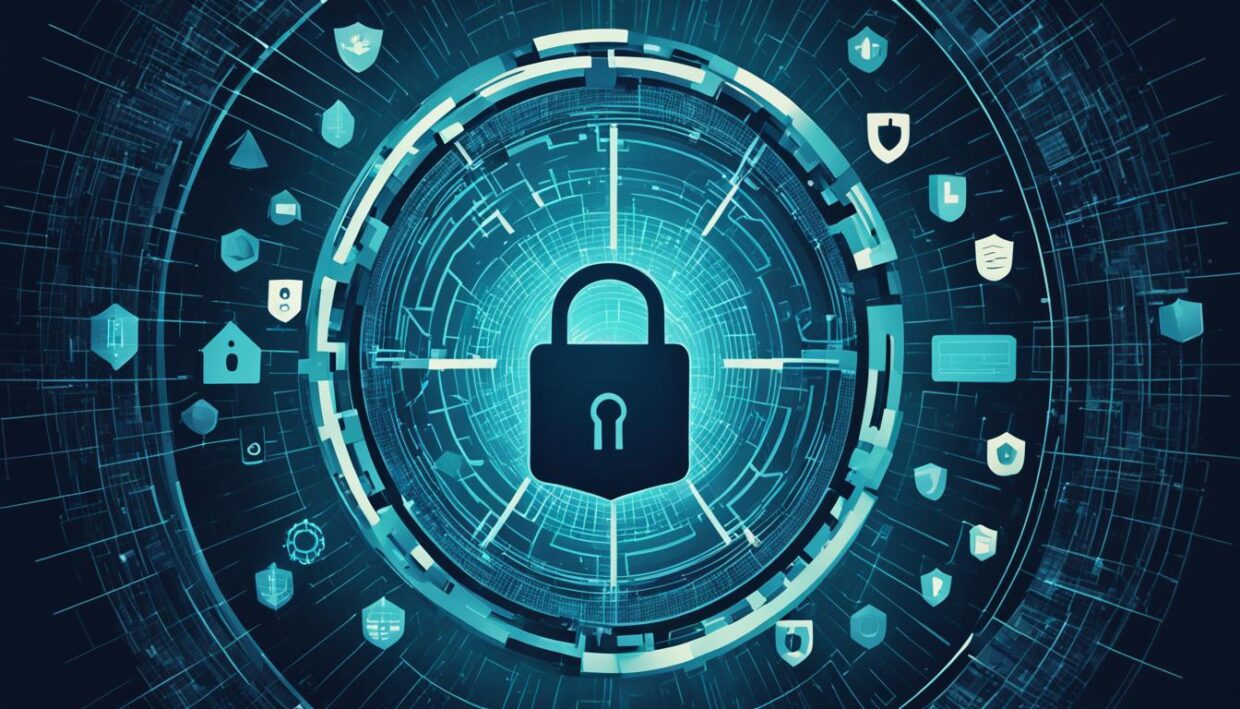
“Regularly reviewing and adjusting your privacy and security settings is like locking your doors and windows – it’s a simple but essential step to protect your digital life.”
Share Information Responsibly
In the digital age, protecting your online privacy and data is crucial. Be mindful of what you share on social media platforms and other online spaces. Your digital footprint can have lasting consequences, so think carefully before posting personal information about yourself or others.
Consider the following when sharing information online:
- What information does the post reveal about you or your loved ones?
- Who might have access to this information, and how could it affect you or others?
- How could this post impact your online privacy and social media security in the long run?
Responsible sharing is the key to maintaining control over your data protection. Be selective about the content you post and prioritize the privacy of yourself and your connections. Remember, your online presence can have a lasting impact, so share information thoughtfully and with consideration for the potential consequences.

By practicing responsible sharing, you can protect your online privacy and maintain a positive digital presence. Stay mindful of your digital footprint and make informed decisions about the information you choose to share on the internet.
Install Antivirus Software
Protecting your devices against cyber threats like malware, ransomware, and bots is crucial in today’s digital landscape. One of the most effective ways to safeguard your system is by installing reliable antivirus software. While the built-in Microsoft Defender Antivirus in Windows provides a baseline level of protection, investing in a third-party antivirus solution can offer superior malware protection and more advanced cybersecurity tools.
Regularly updating your antivirus software and enabling features like ransomware protection can help keep your system secure and up-to-date against the latest threats. Avast, a renowned antivirus software provider, offers a range of free and paid options to suit your needs.
- Avast Free Antivirus provides basic malware defense for Windows, Mac, and Android devices, drawing on over 30 years of cybersecurity experience.
- Avast One Platinum offers comprehensive protection, including identity theft monitoring and up to $2 million reimbursement.
- Avast’s solutions feature real-time scanning, automatic updates, and specialized tools like SecureLine VPN and Cleanup Premium to enhance your overall security and privacy.
By taking the time to install and maintain reliable antivirus software, you can significantly reduce the risk of falling victim to malicious attacks and safeguard your digital assets. Remember, staying vigilant and proactive is the best defense against the ever-evolving landscape of cybersecurity threats.

Explore Security Tools and Features
In the digital age, cybersecurity is of paramount importance. Fortunately, there are numerous security tools and features available to help protect your devices, data, and online identity. By familiarizing yourself with these powerful resources, you can maximize your digital safety and peace of mind.
One essential security tool is antivirus software. Programs like Norton 360, Bitdefender Antivirus, and Kaspersky Anti-Virus can detect and neutralize malware, viruses, and other online threats. Additionally, firewalls like Tufin, AlgoSec, and FireMon provide comprehensive security management to monitor and control network traffic.
For data encryption, consider using tools like KeePass and VeraCrypt, which safeguard sensitive information. Intrusion detection systems (IDS), such as Snort, Security Onion, and Zeek, can proactively identify and respond to unauthorized access attempts.
Cybersecurity Analysts also leverage a range of specialized tools for network security monitoring, web vulnerability assessment, and penetration testing. These include Argus, Nagios, Burp Suite, Metasploit, and Wireshark.
By exploring and implementing these cybersecurity tools and security features, you can significantly enhance your online safety and data protection. Stay vigilant, and take advantage of the powerful resources available to safeguard your digital well-being.
| Cybersecurity Tool | Key Features |
|---|---|
| SiteLock | Website scanning, backup, and vulnerability management |
| SolarWinds Security Event Manager | Automated threat detection and response |
| Wireshark | Live capture and analysis of network protocols |
| Nagios | IT infrastructure monitoring |
| Nessus Professional | Low false positive rate and broad vulnerability coverage |
| Acunetix | Scans web apps for security flaws |
| Snort | Open-source intrusion prevention system and packet sniffer |
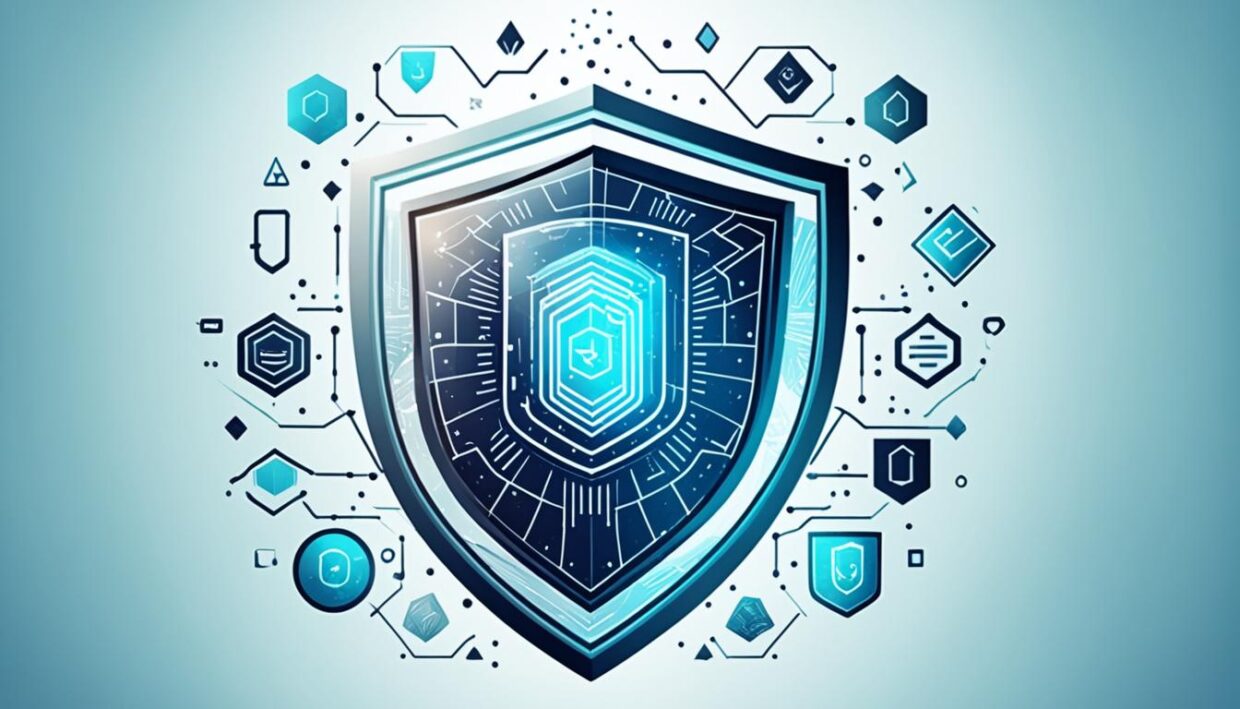
By leveraging these powerful cybersecurity tools and security features, you can significantly enhance your online safety and data protection. Stay vigilant and proactive in securing your digital well-being.
Conclusion
Enhancing your cybersecurity best practices and staying safe online does not have to be a daunting task. By implementing a few simple, proactive measures, such as keeping software updated, using strong and unique passwords, enabling multi-factor authentication, and being cautious of suspicious online activity, you can significantly improve the digital security of your assets and protect yourself from cyber threats.
Regularly reviewing your privacy and security settings, backing up your data, and exploring the security tools and features available to you can further strengthen your online safety. By taking these steps, you can enjoy the benefits of the digital world with greater peace of mind.
While cybersecurity remains an ongoing battle with no permanent solution in sight, the defensive measures highlighted can help bridge the gaps between average and best practices, as well as between best practices and evolving threats. By embracing these IT protection strategies, you can enhance your overall online safety and navigate the digital landscape with confidence.

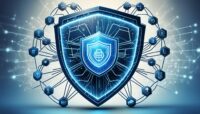
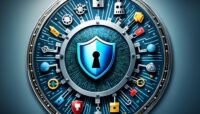
















Be the first to leave a comment